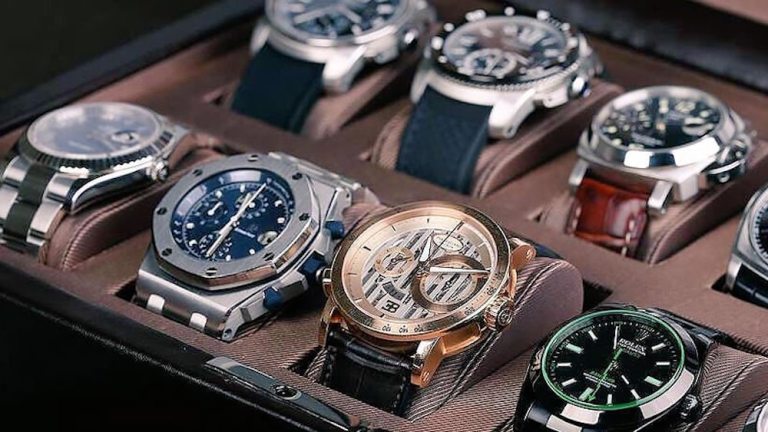The Times Are Changing In The World Of Luxury Watches

The too-good-to-be-true deal can be the bane of luxury watch wearers looking to dip a toe into the secondary market and snag terrific savings on a designer brand.
Unlike other high-end items — the ones over which manufacturers themselves keep some semblance of control in the used goods marketplace — luxury consignments have been something of a Wild West scenario, littered with third-party dealers of varying level of repute.
Until very recently, that is.
Sometimes one finds a truly on-the-level buy and can pick up an amazing deal. Other times, though, one has the experience boutique watch brand MB&F operator Maximilian Büsser had when he tried to purchase a 1970s Rolex Air-King for $2,500 on the website Chrono24.
Büsser told The New York Times he was horrified, though not entirely surprised, when the watch showed up and was not even close to what was advertised.
“The crown was not original, the dial was not original, the case was not original and the glass was not even glass but a piece of Plexi glued to it,” Büsser recalled. “Buying a pre-owned or vintage timepiece is [an] extremely risky business. Most brands have turned their backs on the market and left it in the hands of a lot of individuals who are not to be trusted. It’s time to reclaim it.”
That is where the team at luxury designer jewelry marketplace TrueFacet comes in, and it’s a company that launched on a fairly simple premise. After all, it’s not enough to merely offer a marketplace for pre-owned luxury watches and vintage jewelry — the world is far too full of counterfeiters and disreputable sellers. Serious buyers looking to spend serious money on serious bling need authentication of such goods as much as they need access to them.
Appraising the Situation
Most marketplaces work to screen of counterfeiters — or, at least they say they do when brands complain — but the team at TrueFacet was built around the concept of authentication.
Any piece that is sold on the site must be submitted to an expert-level evaluation to ensure the goods really are good. Specialists can offer pre-authentication services for products based on both uploaded images and a list process that takes a few minutes, by company estimates. The screening is mostly looking for red flags, though, because final authentication is always done by hand.
TrueFacet offers a price advantage, too. Goods purchased on the site tend to trend lower in price by 25 percent to 70 percent of the original retail value, though savings vary widely depending on the specific good and are listed at a range of price points. One can find items starting around $150 and ranging to the tens of thousands of dollars for brands like Patek Phillipe.
But the strongest draw for buyers and sellers, according to TrueFacet founders Tirath Kamdar, CEO, and Chris Chan, COO, is that the marketplace allows for total transparency and trust between all parties involved in the transaction. After expert evaluation, goods are run through the firm’s proprietary pricing engine to generate list prices. Sellers know, before their jewelry is sold, what they will receive — 80 percent of the sale price — and buyers know the goods are real and have been evaluated.
A Jewelers’ Eye For Expansion
Apart from wanting to know what they’re getting, customers shopping in the world of very high-end watches are also used to working in a different type of service environment, Kamdar noted. That environment is more White Glove than Wild West, meaning TrueFacet has also had to grow and mature its service offerings throughout its first five years of existence.
“The service began organically in response to the needs of our clients,” Kamdar added. “Our tireless client services team realized that when shopping for fine jewelry, people want information, a luxury and seamless shopping experience as well as guidance. We realized that even if a piece is not currently being sold on the site, we could leverage our deep contacts in the jewelry industry to obtain anything in a timely fashion, with any budget and make it enjoyable for clients.”
The experience may be enjoyable, but possibly more important are the trust-building aspects in a commerce environment filled with customers who have been trained to be highly cynical about offerings — especially good ones.
While luxury watchmakers and jewelers have long been hesitant to enter directly into the eCommerce selling space — and some remain so — others are beginning to experiment with direct sales of their own products, and are now offering an official pre-owned certification by the designer.
But True Facet has been working to expand its reach as well, most recently with the opening of its Brand Boutique to sell goods through partnerships the company with more than a dozen high-end goods makers. The brand plans to spend the rest of the year expanding these relationships, Kamdar explained.
Watches work uniquely well as a secondhand item, especially in an era that favors vintage and in which used luxury is, in some cases, even preferable for some buyers over newer instantiation. Though high-end retail customers spend more and expect a higher level of hands on attention, though, at their base they want something that customers at all levels want: To know they got what they paid for.